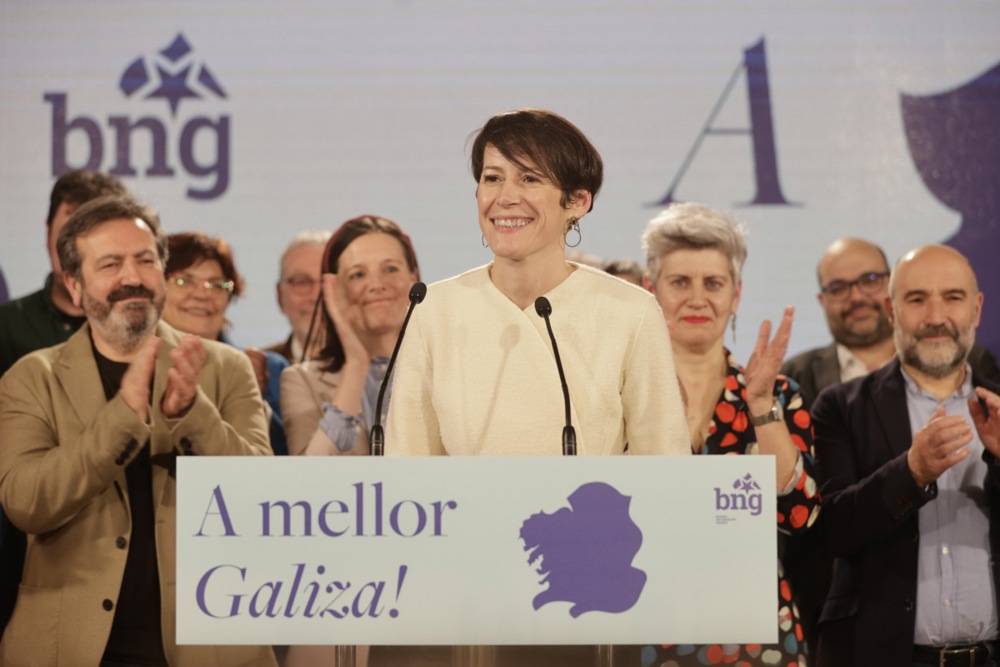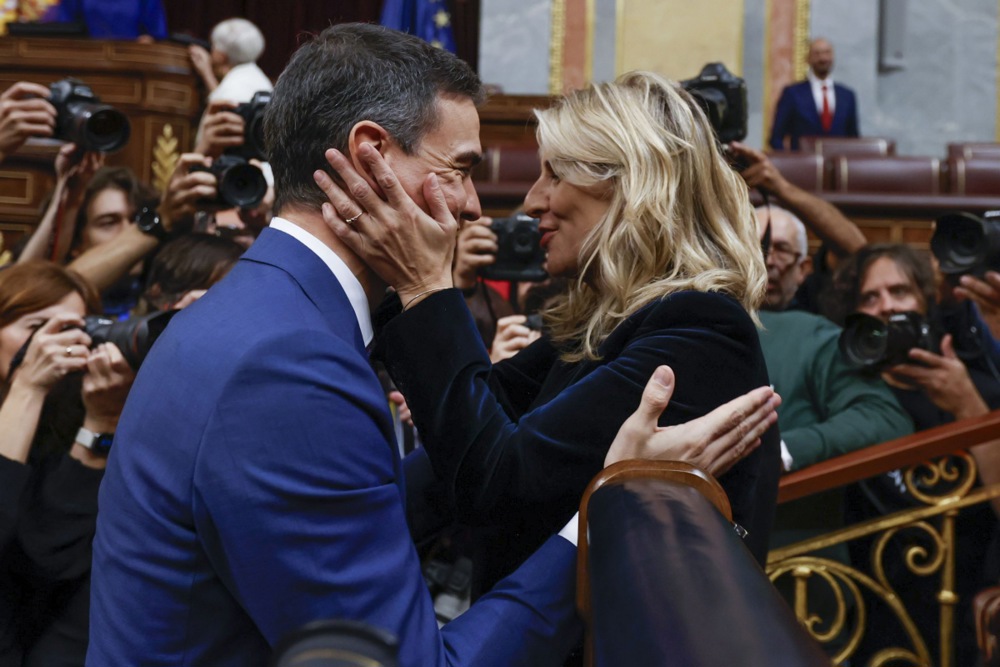Basque separatist groups have emerged victorious after last weekend’s regional elections.
The Basque Nationalist Party (PNV) and the rival EH Bildu party have, when taken together, won a majority in the region’s 75-seat assembly, with both groups landing 27 each.
The April 21 vote was the closest contest in the region’s recent history, with the PNV topping Bildu by just 28,000 votes. This result saw the former lose four seats compared to the previous parliament, while the latter gained six.
Meanwhile, the Basque Socialist Party will have 12 seats in the new regional Parliament, two more than in the last legislative term.
National coalition partner SUMAR also managed to secure a spot in the Basque Parliament for the first time, with the national coalition partner landing one MP in the weekend vote.
This was a feat they failed to achieve in the Galician regional elections last February.
Although the VOX recorded a 20 per cent improvement over its results of 2020, the conservative party will still only sport a single MP in the regional chamber. Its centre-right rival, Partido Popular (PP), won one extra seat, giving the party a total of seven MPs.
The Basque Nationalist Party candidate for the upcoming regional elections, Imanol Pradales, was attacked on his way to a televised debate as fears of political violence in Spain grow. https://t.co/L6IQ3fgw4H
— Brussels Signal (@brusselssignal) April 17, 2024
Although its overall popularity has declined, PNV is set to stay in power in the Basque Autonomous Community, a fact celebrated by some within the group.
“Democracy has prevailed,” the PNV’s lead candidate, Imanol Pradales, said in his victory speech, having only just recently suffered a physical assault on his way to a TV debate last week.
Pradales is now set to enter negotiations with the Socialists, with the senior politician needing their support to become the next Lehendakari (President of the Basque Country).
It is expected that he will receive such support, with Eneko Andueza, the leader of the Socialist Party, having already confirmed that he will not back a Bildu-led government.
Pello Otxandiano, Bildu’s official candidate for Lehendakari, did not announce any intention to lead negotiations in forming a new government.
He did, though, argue that the results showed there was now “a new political reality” in the Basque Country.
“We need to make a leap on [Basque] sovereignty,” he said.
“We need to move this ‘country’ forward.”
The Spanish government has written to its top diplomats across EU member states urging them to obtain support for the official recognition of Catalan, Basque, and Galician as EU languages. https://t.co/p8cEyJjSKP
— Brussels Signal (@brusselssignal) December 1, 2023
The Spanish Prime Minister Pedro Sánchez sustains a fragile minority national Government with the support of both the PNV and Bildu.
Such support came with conditions, with the PNV national leadership demanding Sánchez considered the “sovereign” aspirations of the Basque Country in return for its support of his premiership bid.
Sánchez’s Socialist Party has backed Bildu-led initiatives in regional governments, including the ousting of the Mayor of Pamplona in favour of a Bildu councilman, an incident that has sparked outrage across Spain.
Speaking in the wake of the election, VOX leader Santiago Abascal decried the outcome of the vote.
“These are bad results for Spain,” he said.’
“We are witnessing the last steps of a process of treason, self-destruction, and abandonment of the national parties that is making Spain disappear from this land,” Abascal added.
Spain’s centre-right Partido Popular (PP) is willing to offer the presidency of Congress to the Basque Nationalist Party (PNV). https://t.co/YkEpWO0zVZ
— Brussels Signal (@brusselssignal) August 16, 2023





